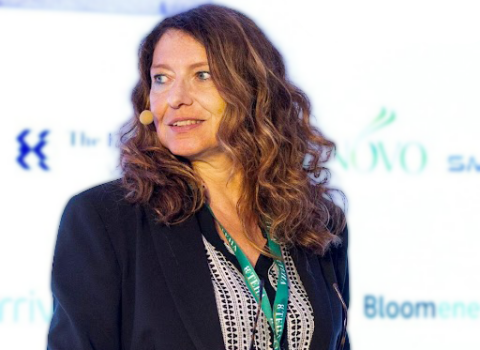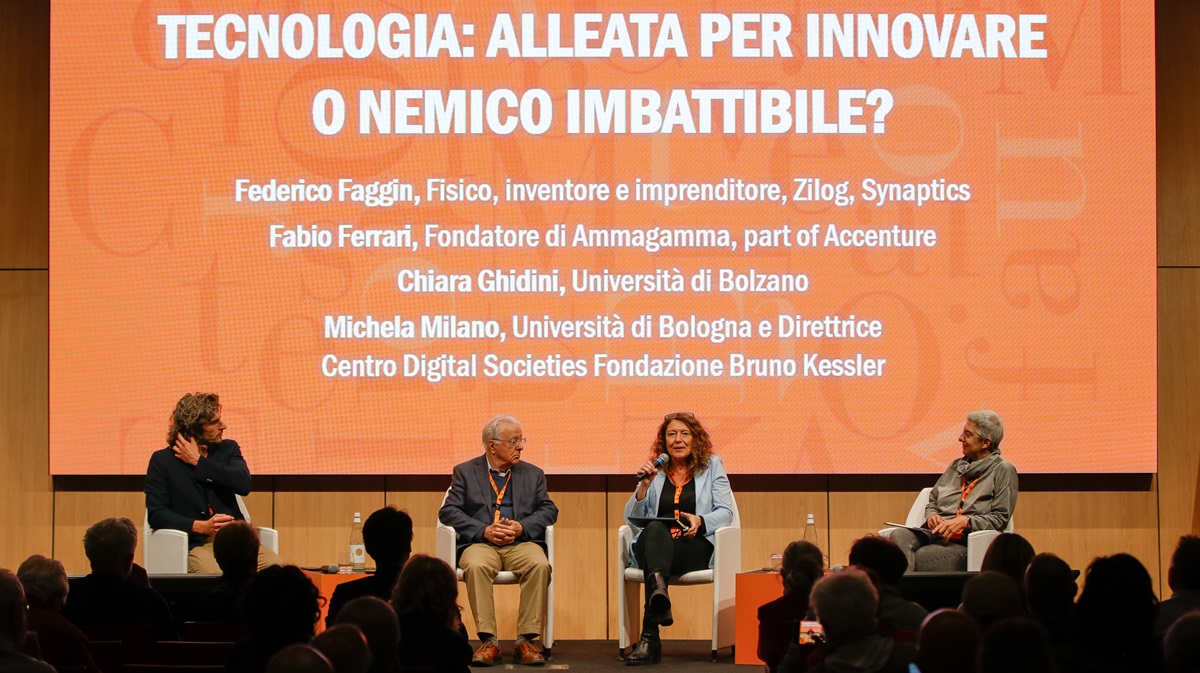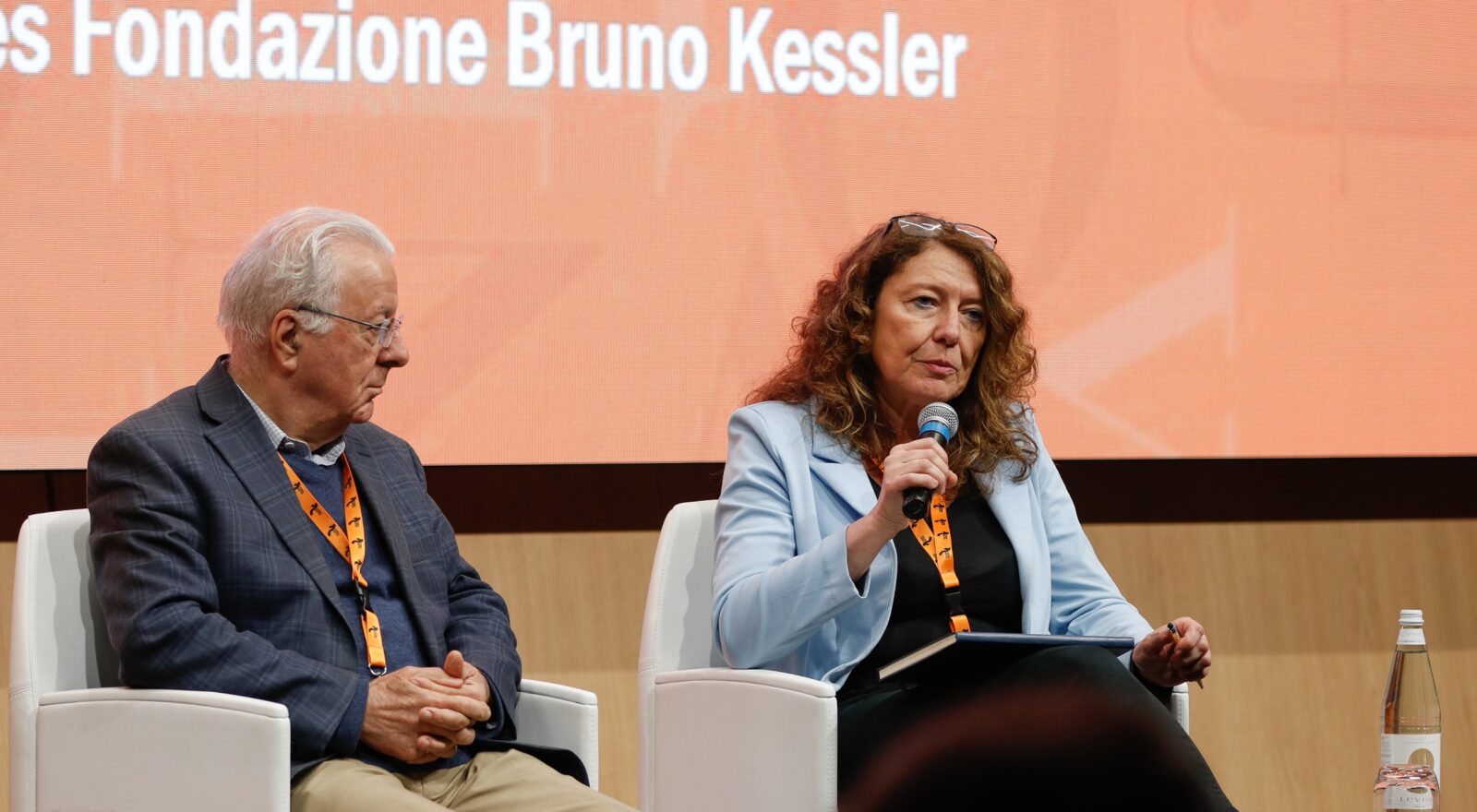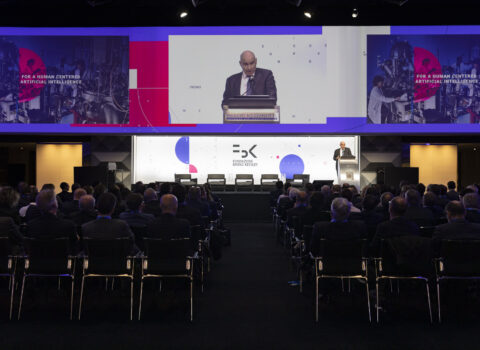
Technology as an ally of innovation?
Yes, but only human consciousness will make the difference: toward “augmented intelligence.”
Today’s event at the ITAS Forum for the 20th Festival of Economics stood out for the relevance, breadth, and urgency of its theme: “Technology: an ally for innovation or an unbeatable enemy?” A title that prompted speakers to reflect on the role of technology innovation in contemporary society.
Leading the discussion was Michela Milano, Director of the Center for Digital Society at Fondazione Bruno Kessler, long committed to developing ethical, inclusive, and human-centered technology. The FBK Center she heads researches and develops digital solutions aimed at improving everyday life, fostering civic participation, and supporting smarter decision-making processes in both the public and private sectors.
It was precisely on these issues that Michela Milano engaged the speakers, turning the panel into an open and emotionally resonant space for dialogue, able to capture the complexity of the topic without falling into easy polarizations.
For Federico Faggin, renowned and respected physicist, inventor, and entrepreneur, artificial intelligence is bound to surpass humans in terms of data processing and computation. However, this will not be the case if humans continue to rely on consciousness, intuition, and free will: in that scenario, AI can truly be used as a great benefit. “The value of human beings lies in what they do,” Faggin explained, “and they are worth much more than machines because they possess consciousness, which enables understanding; even creative ideas stem from consciousness.”
Fabio Ferrari, founder of Ammagamma, a company that develops AI solutions for businesses and employs over 100 professionals including data scientists, mathematicians, philosophers, and designers, with a strong belief in a multicultural approach, echoed this perspective. According to Ferrari as well, the humanities—psychology, anthropology—will provide added value in the use of technology, helping us to better understand phenomena and avoid the risk of standardizing concepts and values.
Education and information are key concepts for Chiara Ghidini, full professor at the University of Bolzano: education should not stop at the ability to use technology, nor be limited to specialists, but should be widespread across all sectors and accessible to citizens, so they can become aware of the technologies they are using.
“We are heading toward augmented intelligence,” Michela Milano concluded, “in which technological tools enhance our intelligence and allow us to explore creative paths driven by human intuition that we would not otherwise consider. In this way, technology can truly become our ally, and AI can bring real benefits to our society.”.





